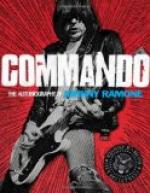The rest of our journey to the north of Lydenburg, over Spekstroom River, along Watervalop, over Steenkampsberg to Roossenekal, was very tedious. The uninhabited Boschveld was very interesting, and we had sufficient provisions then, but the poor, uncivilized Boer inhabitants of the Lydenburg district were unable to supply us with necessaries, the want of which we were beginning to feel. We could not buy a loaf of bread anywhere. And it is anything but pleasant in a time of war to come across such lax and unenergetic people as they proved to be. The men were nearly always at home, and appeared to be discouraged and unwilling to fight. We had all lost our sweet tooth. That one could tell by such expressions as: ‘Even if you give me sugar:—’ But occasionally we got a more desirable substitute, when a beehive was discovered in a cleft of a rock. Some of our men are particularly clever at discovering a hive. I have often seen a man stand gazing up at the sky, walk on a short distance, and again stand gazing, and after awhile appear with a bucket of honey. By watching the flight of the bees they find out in what direction the hive is. A practised eye can see the rising and settling of the bees above the hive from a great distance.
X
From Roossenekal to Pietersburg—with general Beyers to the Magalies mountains
We went in a very different direction from that of General Ben Viljoen’s commando, which took the road to Pietersburg through Leydsdorp. President Steyn celebrated the anniversary of his birthday at Roossenekal, and addressed us in the same spirit as on the former occasion at the Sabie.
Roossenekal is famous for its caves, or grottos, in which the Mapochers hid themselves so well during the Mapoch War. We made use of the opportunity to visit the grottos, of whose formation I should like to know more. What appeared on the outside to be an ordinary hill proved a most wonderful natural building containing many rooms. The old kraal walls and the peach-trees and ‘Turkish figs’, (prickly-pears), overgrown by wild trees, and an occasional earthen vessel, were the remains of the Kaffir city. Of course we cut our names into the rocks by way of becoming immortal. We could not help speaking with great admiration of the wild Kaffir tribe who from such a hiding-place fought for months for a life of independence. We had no time to visit the grottos further away.
Although our horses were well fed during this time of rest, they profited little, on account of the constant cold rains that fell. We fortunately still had some tents, that we used only in case of rain. Our Commandant was still always in doubt whether to proceed to Pietersburg, for we were quite ignorant of the enemy’s movements during the last few weeks. Later on, when he got the information that




